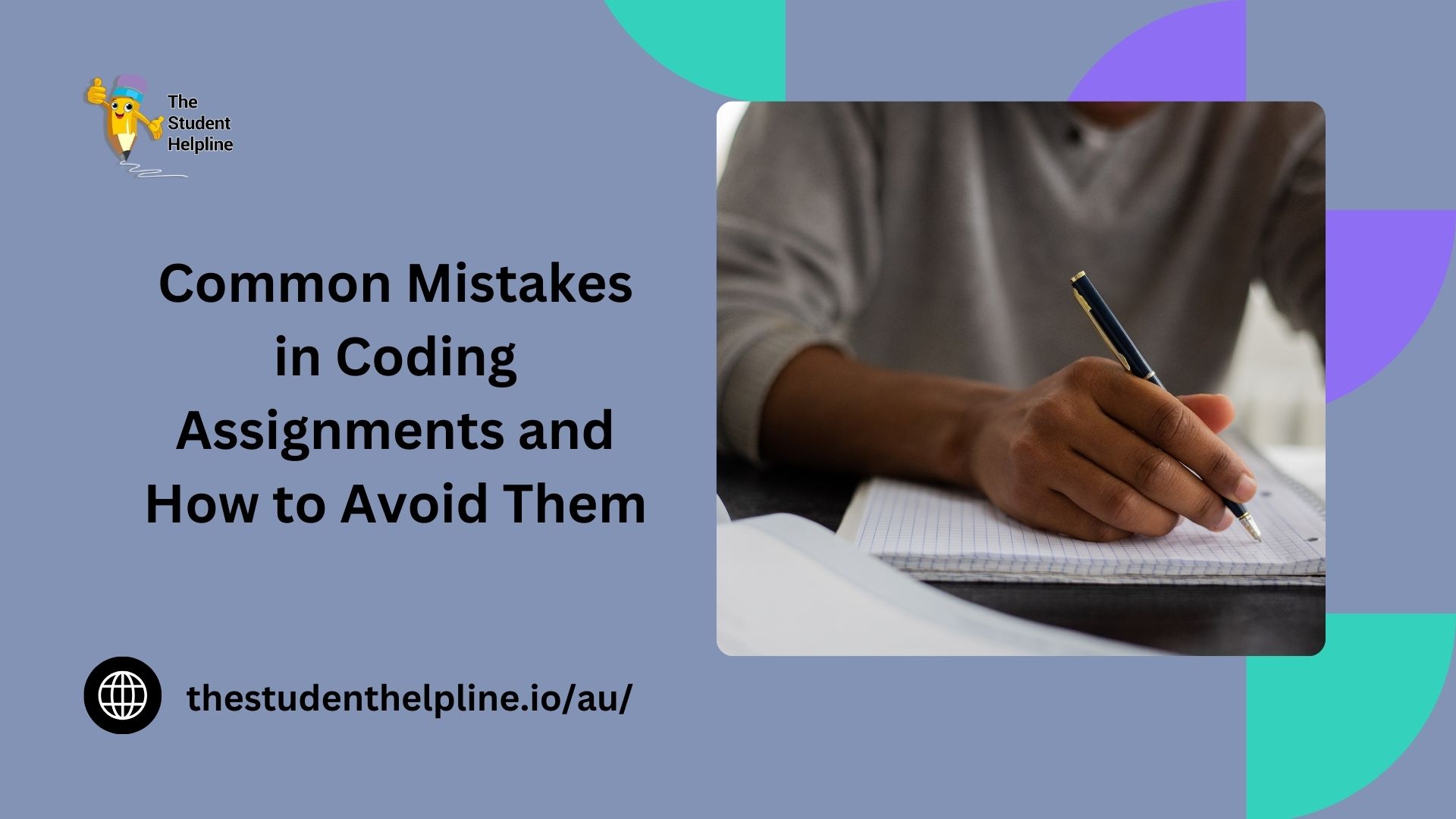
Coding assignments are an essential part of learning programming, whether you’re a beginner or an advanced learner. However, students often make common mistakes that can lead to poor performance or incomplete assignments. Understanding these errors and learning how to avoid them can significantly improve the quality of your work. If you find yourself struggling, seeking programming assignment help can be an effective solution.
1. Not Understanding the Problem Statement One of the most frequent mistakes students make in their coding assignments is not fully understanding the problem statement. Many students rush into writing code without analyzing the requirements, leading to incorrect implementations.
How to Avoid It:
- Read the problem statement multiple times and break it down into smaller parts.
- Identify inputs, expected outputs, constraints, and edge cases.
- Write down the logic in plain language before coding.
- If in doubt, ask your instructor or look for best assignment help online.
2. Poor Code Structuring and Formatting Messy code with no proper indentation or structure makes debugging and reviewing difficult. Lack of comments and inconsistent variable naming conventions can make the code unreadable.
How to Avoid It:
- Follow a consistent coding style, such as PEP8 for Python or Java conventions.
- Use indentation properly and separate different logical sections with spacing.
- Add meaningful comments to explain your code.
- Name variables and functions descriptively.
3. Ignoring Edge Cases and Test Cases Many students test their code only with standard input values and forget to consider edge cases. This can result in the program failing unexpected test cases.
How to Avoid It:
- Test your program with different types of inputs, including edge cases.
- Handle exceptions and errors gracefully.
- Use automated testing tools when possible.
4. Hardcoding Values Instead of Using Variables A common mistake among beginners is hardcoding values instead of using variables or parameters. This makes the program inflexible and limits its usability.
How to Avoid It:
- Use variables to store values that may change.
- Write functions that accept parameters to increase reusability.
- Avoid magic numbers (unexplained constant values) in your code.
5. Inefficient Code and Ignoring Performance Students often write inefficient code that takes too long to execute or uses excessive memory. This happens due to poor algorithm selection or redundant computations.
How to Avoid It:
- Understand time and space complexity (Big-O notation) to optimize your code.
- Choose the right data structures and algorithms for the task.
- Avoid unnecessary loops and repetitive calculations.
- Seek programming assignment help from experts if needed.
6. Not Debugging the Code Properly Many students do not debug their code properly and struggle to identify errors. Instead of analyzing the issue, they randomly modify code in hopes of making it work.
How to Avoid It:
- Use debugging tools like breakpoints and print statements to track variable values.
- Read error messages carefully to understand the cause of the issue.
- Debug step by step to pinpoint the problem.
- Consider using an Integrated Development Environment (IDE) with built-in debugging support.
7. Overcomplicating Solutions Students often try to write overly complex code instead of choosing simple, efficient solutions. This makes the program harder to understand and maintain.
How to Avoid It:
- Aim for simplicity and clarity in your code.
- Break down the problem into smaller, manageable parts.
- Follow best practices and use built-in functions when appropriate.
- If unsure, get assignment help from a professional.
8. Copying Code Without Understanding It Many students copy code from online sources or peers without understanding it. This can lead to plagiarism issues and difficulties during assessments.
How to Avoid It:
- Use online resources for reference but write code in your own words.
- Understand the logic behind each line of code before using it.
- Practice coding on your own to strengthen your understanding.
9. Poor Documentation Lack of documentation makes it difficult for others (and even yourself) to understand your code later. This is especially important for complex projects.
How to Avoid It:
- Add meaningful comments explaining functions, classes, and complex logic.
- Create README files for projects explaining installation and usage.
- Follow standard documentation practices.
10. Procrastination and Last-Minute Coding Many students start their assignments at the last minute, leading to rushed and poorly written code. This often results in errors and incomplete work.
How to Avoid It:
- Start your assignment as early as possible to have enough time for testing and debugging.
- Break the task into smaller parts and set deadlines for each.
- Seek programming assignment help australia if you’re struggling with time management.
Conclusion
Avoiding these common mistakes can greatly improve your coding skills and help you perform better in your programming assignments. Developing good habits like reading problem statements carefully, structuring code properly, testing thoroughly, and debugging effectively will ensure success. If you’re ever stuck, don’t hesitate to seek assignment help from tutors, online forums, or professional services. Mastering these skills will not only help you complete assignments successfully but also prepare you for real-world programming challenges.